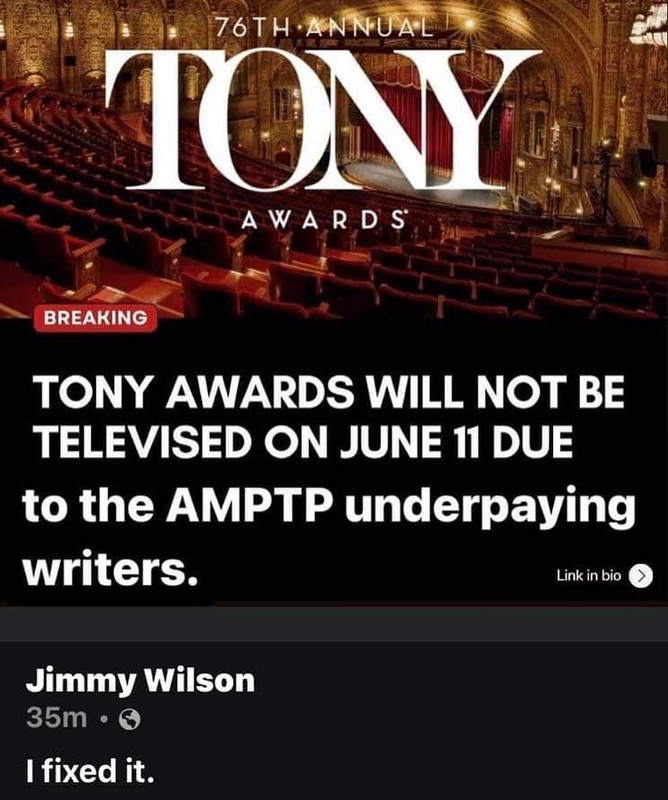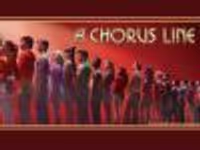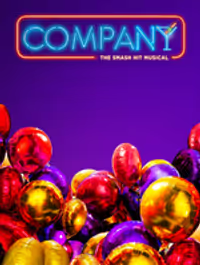WGA strike impact on the 2023 Tonys
jimmycurry01
Broadway Legend Joined: 5/28/05
#200WGA strike impact on the 2023 Tonys
Posted: 5/13/23 at 11:50am
It's very easy to tell who among us are the young kids. It's clear that they don't quite get the gravitas of the situation, understand how and why the unions(s) work, or why this is so important. This strike is bigger and more important than a televised awards ceremony. This strike is laying down the blueprint for the next two unions going into negotiations.
The poorly-rated televised ceremony wasn't going to be doing much for Broadway in a time when inflation is as high as it is. Money is tight; ticket prices are high, and fewer people even bother with network television. In the long run, the strike will serve those in the industry better than the televised ceremony would have. Those who have been nominated know and understand this.
#201WGA strike impact on the 2023 Tonys
Posted: 5/13/23 at 11:56am
pmensky said: "Does anyone know why TV shows like The View and the ACM Awards are allowed to continue while others, including The Tonys, are not?"
The View has acknowledged that the are running the show without writers and the cohosts have to do the work themselves.
soxboy22
Understudy Joined: 4/19/22
#202WGA strike impact on the 2023 Tonys
Posted: 5/13/23 at 12:11pm
Just grasping at straws here. A telethon benefitting ______, hosted by theatre -friendly Hollywood types….Streep, Blanchett, Springsteen, Taylor Swift doing a number on tour?
pmensky
Broadway Star Joined: 7/18/11
#203WGA strike impact on the 2023 Tonys
Posted: 5/13/23 at 12:12pm
ACL2006 said: "pmensky said: "Does anyone know why TV shows like The View and the ACM Awards are allowed to continue while others, including The Tonys, are not?"
The View has acknowledged that the are running the show without writers and the cohosts have to do the work themselves."
But the reporting says that the WGA is blocking the broadcast. It’s not saying that Broadway League or CBS is cancelling the broadcast because of an absence of writers. So, why is The View allowed to move forward without writers?
#204WGA strike impact on the 2023 Tonys
Posted: 5/13/23 at 12:15pm
Who really knows? Who cares?
tony’s ain’t happening THAT night on CBS.
WAIT for another announcement. I’m sure the league is coming up with something
Peppa222
Chorus Member Joined: 5/9/22
#205WGA strike impact on the 2023 Tonys
Posted: 5/13/23 at 1:10pm
"But the reporting says that the WGA is blocking the broadcast. It’s not saying that Broadway League or CBS is cancelling the broadcast because of an absence of writers. So, why is The View allowed to move forward without writers?"
There are many WGA members who are also nominated for Tonys. It becomes an issue of picketing/crossing a picket line and you'd end up having an awards show where very few of the nominees/winners show up or perform. It'd be a worse PR situation for Broadway than just not having it, IMO.
pmensky
Broadway Star Joined: 7/18/11
#206WGA strike impact on the 2023 Tonys
Posted: 5/13/23 at 1:35pm
Peppa222 said: ""But the reporting says that the WGA is blocking the broadcast. It’s not saying that Broadway League or CBS is cancelling the broadcast because of an absence of writers. So, why is The View allowed to move forward without writers?"
There are many WGA members who are also nominated for Tonys. It becomes an issue of picketing/crossing a picket line and you'd end up having an awards show where very few of the nominees/winners show up or perform. It'd be a worse PR situation for Broadway than just not having it, IMO."
The reasons you stated would make sense if it were the Broadway League or CBS’s decision to cancel the broadcast, but I don’t think the WGA would care if there were absences or picketing.
#207WGA strike impact on the 2023 Tonys
Posted: 5/13/23 at 2:04pm
Let's be clear about one thing. WGA does not have the power to block a broadcast. It has the power of the picket line to block a live broadcast. No one is going to Washington Heights on June 11. But the award announcements can be made and can be interspersed with recorded footage and/or ads. As I believe I have said before, WGA would welcome such a broadcast which would highlight the value of its members, something of which they are seeking recognition by means of the strike.
I also believe Broadway would benefit from the announcement of the awards on June 11. It finally would force the movement of Broadway marketing forward into the 21st Century in a real way rather than as its 20th century managers have tiptoed in greater or lesser degrees of cluelessness (with the League leading the way in the former).
#208WGA strike impact on the 2023 Tonys
Posted: 5/13/23 at 3:47pm
BorisTomashevsky said: "Kad said: "BorisTomashevsky said: "IdinaBellFoster said: "Almost all of the Book of a Musical nominees are members of the WGA."
Makes it seem even more egregious to me. Denying their own members the annual platform for international recognition. Plus all the other unions involved. “Thanks for the solidarity so far, everyone! Now fu"
As opposed to… what? The theater unions saying, “our solidarity is conditional on you undermining your strike to let our award show happen”? That is not how this works.
"
Sure, but a bone could have been thrown to an industry that is still struggling to return to its full power. There’s no calculator for this, and no one owes anyone anything, but I think a more circumspect view could have been taken with this - especially since they’ve granted waivers before and denied this one."
And this situation is different than previous ones. And the fact that folks are coming here with prior precedent for waivers kind of underscores the danger in granting these waivers at all: it creates an opening that can and will be exploited.
#209WGA strike impact on the 2023 Tonys
Posted: 5/13/23 at 3:55pm
Frankly, the current model of “let’s bleed money until the Tonys, and if we do well, maybe we’ll be able to limp along for a few more months” is a backwards way to run this industry. The Tonys have evolved from an end-of-season capper to the reason to produce shows at all and the linchpin to producing strategies. It’s the tail wagging the dog and no other part of the entertainment industry is run this way.
#210WGA strike impact on the 2023 Tonys
Posted: 5/13/23 at 4:33pm
As an example, in tech, there are major annual events at which new products and innovations are ANNOUNCED. Then the internet and social media, blogs, influencers, videos etc etc takes over. This process doesn't just happen magically.
#211WGA strike impact on the 2023 Tonys
Posted: 5/13/23 at 4:39pm
I'm going to say that the problem is the fabled existence of Broadway itself. Broadway is not Hollywood, because Hollywood is a synecdoche for the whole film industry. It's not "the place where it all happens, the only place that matters." There is Atlanta. There is Toronto. There is literally a whole country. But for theatre, if it doesn't happen in those few theatres on those few city blocks, it's meaningless. There should be a Broadway circuit where tourist-drawing and industry-important shows are being developed and run in at least four quadrants of the country, not "fringe stuff and maybe a sitdown transfer of a show from the physical location that is Broadway."
Right now, the production model that makes sense is "get your show in the consciousness, get a major production, get a cast recording, and get it into licensing where it will bring in beaucoup dollars every quarter." The notion of "creating a show that runs for years" is as pie-in-the-sky as "creating a movie that will sell better than Avatar," and yet somehow it seems like THAT is still the be-all and end-all of producing mainstream theatre. The internet happened, people. MTI and Concord happened. It's time the paradigm shifted to reflect that.
#212WGA strike impact on the 2023 Tonys
Posted: 5/13/23 at 5:15pm
darquegk said: "I'm going to say that the problem is the fabled existence of Broadway itself. Broadway is not Hollywood, because Hollywood is a synecdoche for the whole film industry. It's not "the place where it all happens, the only place that matters." There is Atlanta. There is Toronto. There is literally a whole country. But for theatre, if it doesn't happen in those few theatres on those few city blocks, it's meaningless. There should be a Broadway circuit where tourist-drawing and industry-important shows are being developed and run in at least four quadrants of the country, not "fringe stuff and maybe a sitdown transfer of a show from the physical location that is Broadway."
Right now, the production model that makes sense is "get your show in the consciousness, get a major production, get a cast recording, and get it into licensing where it will bring in beaucoup dollars every quarter." The notion of "creating a show that runs for years" is as pie-in-the-sky as "creating a movie that will sell better than Avatar," and yet somehow it seems like THAT is still the be-all and end-all of producing mainstream theatre. The internet happened, people. MTI and Concord happened. It's time the paradigm shifted to reflect that."
Sure but longer runs usually equate to more success on tour, more regional and amateur productions, more social media presence, better chance of revivals down the road, etc. And Tony wins can help for a longer run. So it's all connected. I don't think producers of some of these shows truly think the Tonys are the one thing that will make or break the success in the long, post-Broadway life of a show. But the exposure is a piece of the puzzle.
bear88
Broadway Legend Joined: 4/26/16
#213WGA strike impact on the 2023 Tonys
Posted: 5/13/23 at 6:44pm
Double post - sorry about that
Playbill_Trash
Featured Actor Joined: 3/15/18
#214WGA strike impact on the 2023 Tonys
Posted: 5/13/23 at 7:11pm
HogansHero said: "I also believe Broadway would benefit from the announcement of the awards on June 11. It finally would force the movement of Broadway marketing forward into the 21st Century in a real way rather than as its 20th century managers have tiptoed in greater or lesser degrees of cluelessness (with the League leading the way in the former)."
Damn Hogan, when we agree I don’t know what to do. The stars must have aligned and mercury is in the microwave.
I was just about to make a post about how the official denial of a waiver should be a wake up call for the Broadway League, ATW, and more importantly the marketing teams of each individual show to enter the 21st century in terms of promotion and advertising.
The wake up call is: It’s official, you will not have the promotion you usually have this June 11th. So - ADAPT. Take ownership of the problem in front of you. Keep the June 11th deadline because that is what you planned for and time is still money with each week’s running costs. But beef up your online and other marketing strategies and push that you got all these nominations and now is the time to buy advance tickets before the awards are announced. Then as far as the winners getting announced, cut right to the day after the awards when you usually run ads saying you won how ever many awards. If you’re going to mourn the loss of tony night from a marketing perspective, start working on all the pieces you take from tony night to make an ad. Invest in show clips/ b-roll in front of audiences (that’s what your viral telecast performance would be anyway).
All of this to say I agree with everyone saying if the loss of one telecast will bring an industry to its knees then there are bigger problems, tail wagging the doll, all of those sentiments. ADAPT. Embrace and invest in a beefed up Tony awards YouTube channel and online experience, viral marketing, better tv spots, and selling to middle America.
Keep the June 11th date, but don’t be quiet. You can do all of this while standing with fellow unions and advocating for yourselves. I have more faith in individual marketing teams than the dinosaurs leading the League and ATW.
(Also call me a hypocrite but, add me to the camp that you can advertise all you want - until you lower the ticket prices you will always fail to access wider audiences).
bear88
Broadway Legend Joined: 4/26/16
#215WGA strike impact on the 2023 Tonys
Posted: 5/13/23 at 7:12pm
jesse benet said: "As someone who works in the industry, I think the people who are saying “only so-and-so many people watch the Tonys anyway/no one sees a show because it won Tonys” have a narrow view of theater marketing: of course social media, news publications, word-of-mouth, digital advertisements both during AND after the telecast make it widely known who won awards, along with the performances of the night being shared up and down (who here actually watched the BAFTAs live instead of just seeing Arianna DeBose’s opening number plastered across the web?) – I think it’s also too easy to say “no one goes to see Moulin Rouge because it won so many Tonys” when your frame of reference is… yourself and your friends and not the million+ of people who’ve seen the show and may have thought it a jukebox garbage fire before knowing it was heavily awarded.’
Bad example. Moulin Rouge! was a big hit before the pandemic. It was always a natural screen-to-stage adaptation, and the movie was a popular hit that a lot of people know. Regular folks don’t have the attitude about jukebox musicals that you and I do. It’s a word-of-mouth hit. I agree with you that the Tony Awards are valuable publicity for the shows that are still running, but some musicals don’t need as much help.
Think of 2017. Ben Platt was a minor celebrity but his musical, Dear Evan Hansen, was a must-see show long after the original stars left. Come From Away won nothing but an award for Best Director but ran for years. Even Great Comet was doing OK, though more in the drawing power of Josh Groban (even though I personally lived the show). Post-pandemic, Six didn’t win Best Musical but is doing great. MJ is doing great without a Best Musical nod.
I have been skeptical that even a Best Musical win would do all that much for any of the new shows. They’ve been limping along for months, with the partial exception of & Juliet, another jukebox musical that found an audience. (It might be too soon to draw too many conclusions about Shucked or New York, New York.)
I concede that the absence of a televised Tony Awards ceremony, and the media attention that goes with it, will hurt these shows - and have said so. But there is something off about a model that depends so much on a once-a-year, glorified infomercial on network television.
Broadway needs shows that succeed both artistically and commercially. Hamilton wasn’t a sensation because it won Tony Awards. It was already a massive, must-see hit months before the musical was nominated for anything.
#216WGA strike impact on the 2023 Tonys
Posted: 5/13/23 at 8:07pm
I would make sure not the exaggurate. Looking at the data, it is clear that every Best Musical winner of the past decade, with the sole exception of Moulin Rouge (which is obviously for different reasons), got a substantial grosses boost from the Tonys (even Strange Loop).
However, the only show that we can definitively say went from flop to hit because of the Tonys is Gents Guide. For Fun Home and Hadestown, they were too new at the time of their wins to definitively state that they would have flopped without them, and Strange Loop obviously didn't become a hit. But, Band's Visit, Kinky Boots, Evan Hansen, Moulin Rouge, and Hamilton were all somewhere in the range of successful to mega hit before their wins!
Islander_fan
Broadway Legend Joined: 6/25/14
#217WGA strike impact on the 2023 Tonys
Posted: 5/13/23 at 8:39pm
Sure, winning a Tony can help a show at the box office. People in general know what the Tony awards are. And, if a family is planning a trip to New York City and want to see a show or two, they are most likely going to pick one that one a Tony regardless of the category. I know, I said this earlier in the thread but still. There are other ways to advertise that your show won a Tony.
And speaking of adapting, for all those that say the telecast is crucial for Broadway need to realize something. As it stands, the ratings for the Tonys are abysmal year after year. CBS is is already putting some of the Tony telecast on Paramount Plus. I would not be surprised to find out in a year or so, due to ratings, they put the whole thing on Paramount Plus. CBS would make more money that way.
bear88
Broadway Legend Joined: 4/26/16
#218WGA strike impact on the 2023 Tonys
Posted: 5/13/23 at 9:44pm
Kad said: "Frankly, the current model of “let’s bleed money until the Tonys, and if we do well, maybe we’ll be able to limp along for a few more months” is a backwards way to run this industry. The Tonys have evolved from an end-of-season capper to the reason to produce shows at all and the linchpin to producing strategies. It’s the tail wagging the dog and no other part of the entertainment industry is run this way."
It feels like the crisis over the Tony Awards telecast is calling attention to a Broadway problem: its recent difficulty in generating new shows that are both artistic successes that can draw audiences. That's not so different from the film industry, where popcorn movies now rule and films aimed at adults only succeed rarely. The debate over the merits of Everything Everywhere All at Once made me chuckle, because it is exactly the sort of artistic and commercial success that Broadway needs.
Post-pandemic, I can't think of many new shows that have succeeded without stars. Six and MJ are really the only two, and the latter had a built-in advantage because audiences were basically coming to see a Michael Jackson impersonator perform some of his most famous songs. Everything else has labored to varying degrees, and the only other financial successes have been revivals of older musicals with big names (The Music Man, ignored by the Tonys, Funny Girl with Lea Michele, and Sweeney Todd with Josh Groban; Parade, with Ben Platt, is a modest success too).
This may just be a bad patch, as has happened many times in Broadway history, but I agree that excessive reliance on a once-a-year awards show on network television (where, as Islander_fan notes, it probably won't remain for much longer) is a mistake.
#219WGA strike impact on the 2023 Tonys
Posted: 5/13/23 at 9:48pm
Islander_fan said: "Sure, winning a Tony can help a show at the box office. People in general know what the Tony awards are. And, if a family is planning a trip to New York City and want to see a show or two, they are most likely going to pick one that one a Tony regardless of the category. I know, I said this earlier in the thread but still. There are other ways to advertise that your show won a Tony.
And speaking of adapting, for all those that say the telecast is crucial for Broadway need to realize something. As it stands, the ratings for the Tonys are abysmal year after year. CBS is is already putting some of the Tony telecast on Paramount Plus. I would not be surprised to find out in a year or so, due to ratings, they put the whole thing on Paramount Plus. CBS would make more money that way."
I have a few nitpicks but before I get to that, let me underscore your central point. The Tonys are indeed watched by a relatively insignificant number of people, especially when you subtract the number of people who will never see a show or who will see a fair number of shows in any case (e.g., us). A significantly larger group of people will see shows (on Broadway, on tour, in another country, etc.) because it has the imprimatur of the Tony award. Many of those people also want to sample the show before buying, to make sure it aligns with their taste.
In the last century, the main way to gain access to such a sample was by watching the Tonys on TV on a chosen Sunday night in June. It is now 2023 and there are many other ways of seeing a sample (actually, usually, multiple samples). If, as in your setup, a family is coming to New York and wants to see a Broadway show or two (or ten), they will seek out the recent Tony winners and then either click through or google and locate samples. They will then watch them, discuss them and, if things are working as they should, be able to buy tickets to them easily right then. That process will sell tickets, at least to the winner of the top prizes. (1st nitpick: the data shows that other categories rarely sell significant tickets, with the exception of an especially lauded performer, although, quite often, before the family gets here, the performer has left the show.)
Non-winners can do as well as Tony winners, but this requires more focused marketing on the internet and especially in social media. Successful non-winners are far less likely to sell tickets to folks who happened to see the show. Word of mouth is the only thing beyond the internet/social media that sells these tickets.
My other nitpicks are much more beside the point. The extra hour of the Tonys was planned on Pluto (which is free), not Paramount+ which is not. Yes Paramount owns Pluto. It also owns CBS. It's hard to say what the future holds for the Tonys on CBS after the present contract, but it is not correct to say that Paramount makes more by NOT having the Tonys on CBS. At least not today.
#220WGA strike impact on the 2023 Tonys
Posted: 5/14/23 at 6:57am
HogansHero said: "A significantly larger group of people will see shows (on Broadway, on tour, in another country, etc.) because it has the imprimatur of the Tony award. Many of those people also want to sample the show before buying, to make sure it aligns with their taste.
In the last century, the main way to gain access to such a sample was by watching the Tonys on TV on a chosen Sunday night in June. It is now 2023 and there are many other ways of seeing a sample (actually, usually, multiple samples). If, as in your setup, a family is coming to New York and wants to see a Broadway show or two (or ten), they will seek out the recent Tony winners and then either click through or google and locate samples. They will then watch them, discuss them and, if things are working as they should, be able to buy tickets to them easily right then. That process will sell tickets, at least to the winner of the top prizes. (1st nitpick: the data shows that other categories rarely sell significant tickets, with the exception of an especially lauded performer, although, quite often, before the family gets here, the performer has left the show.)"
I totally agree with this. It's why I think it's best that the awards are still announced on June 11th. When the strike is over maybe still do some sort of telecast with performances and maybe even an "official" presentation of the trophies with speeches. But, let the shows that will be winners get the title of "Tony Winner" ASAP and then turn it over to them to try to use it to their advantage.
MemorableUserName
Broadway Legend Joined: 3/27/19
#221WGA strike impact on the 2023 Tonys
Posted: 5/14/23 at 12:16pm
Saw this correction posted on social media a lot the past few days...
#222WGA strike impact on the 2023 Tonys
Posted: 5/14/23 at 1:00pm
and I assume you realize it is fake...
MemorableUserName
Broadway Legend Joined: 3/27/19
#223WGA strike impact on the 2023 Tonys
Posted: 5/14/23 at 1:06pm
Given that the amended text doesn't match the rest of the title, that the name of the person who made the edit is included in the screenshot with a note that he "fixed" it, and the original title still exists in the lefthand "Popular" column on this very page, it seems unlikely anyone wouldn't understand it's a "fake" correction to prove a point (and improve accuracy).
Would putting "correction" in quotes have made that clearer to you?
#224WGA strike impact on the 2023 Tonys
Posted: 5/14/23 at 2:09pm
I guess my first thought was what was the point of posting it. But my principal reaction is that, contrary to your description of it ("improving accuracy" ), it is actually materially inaccurate. We do not know, and will not at least until tomorrow, that the "awards will not be televised." I am pretty confident that they will be, in some form. Additionally, and of greater concern than this sloppiness, the "fix" suggests that this strike is about underpayment of writers. That gets it very very wrong, and does a tremendous disservice (to the point that one has to wonder if that was not the point of the tweet) to the serious existential issues that far exceed the current pay rate in importance.
Updated On: 5/14/23 at 02:09 PMVideos






